'Overcrowded' GCSE curriculum worry over new maths qualification
- Published
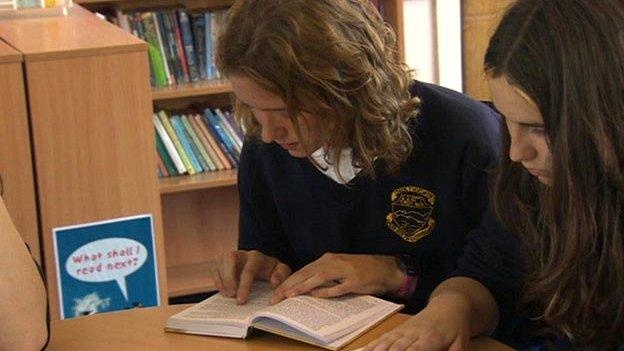
Fourteen and 15-year-old Year 10 pupils face the new-style GCSEs from September
The introduction of new, Wales-only GCSEs in September will lead to the curriculum becoming overcrowded, a teaching union has warned BBC Wales.
Year 10 pupils from September will be the first to follow new English-language, Welsh and maths courses.
The ATL union said it would have an impact on optional subjects like French, geography and history.
The education minister said the Welsh government had worked with schools to advise on creating timetables.
The new qualifications will put more emphasis on exams and less on course work.
Because of more compulsory subjects on the curriculum there will be also be fewer options for studying non-core subjects.
The English and Welsh courses will also have a greater stress on the functional aspects of language with reading, writing, speaking and listening skills all counting towards the final grade.
Most pupils will also be expected to sit two mathematics GCSE exams, with two separate qualifications:
GCSE Mathematics-Numeracy will focus on the mathematics needed for everyday life, learning and work
GCSE Mathematics aims to give young people the mathematical skills they need for further mathematical, technical or scientific study.
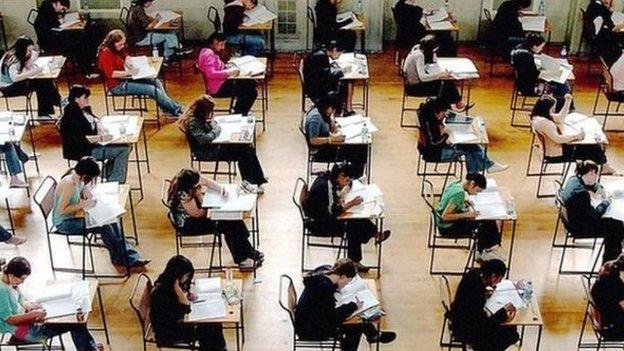
The new qualifications will put more emphasis on exams
But David Healey from ATL teaching union has concerns.
"Maths is being split into two GCSEs," he said. "Now, a GCSE is supposed to take up to 120 guided learning hours and that's, effectively doubling the amount of time that should be going to maths, although the government say it can still be done in the time of one GCSE.
"I'm not quite sure how that's meant to work, but we'll see."
From September, the new Welsh and English and double maths GCSEs will all count towards how schools are measured, which is also a cause for concern to Mr Healey.
"There are now a lot more compulsory subjects in school which is, obviously having an effect on optional subjects such as French, geography, history and so on, and the numbers that are able to take those.
These pupils from Ysgol y Moelwyn in Blaenau Ffestiniog have some concerns but teacher Sharon Davies says standards should improve
'Final judgement'
"So the compulsory subjects are being introduced at the expense, really, of many of the optional subjects."
But Education Minister Huw Lewis insists the two mathematics qualifications can be studied in the same time as one qualification.
He told BBC Wales more of the course will be focused on what will be examined, leading to pupils having a "greater understanding of the whole course, not just a narrow part of it."
Mr Lewis also insisted non-compulsory subject should not be squeezed out of the curriculum as a result of these changes.
"We have worked with schools through workshop-type events to advise us about how the timetable can be put together.
"Now, it's not for me to dictate to a school how it timetables its subjects, that is a matter for them, they make the final judgement on that. But our advice is that there isn't really any call to narrow the number of subjects on offer."
- Published24 June 2014
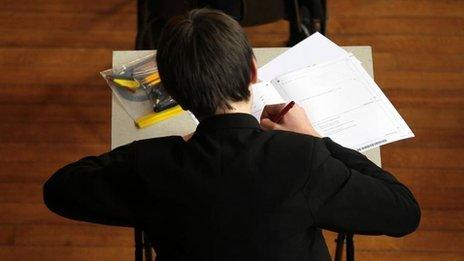
- Published21 August 2014
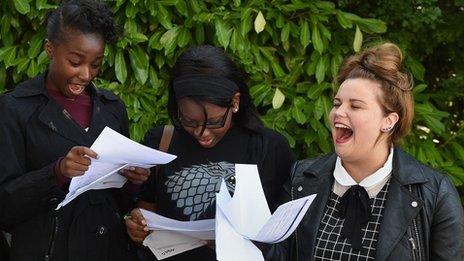
- Published28 January 2015
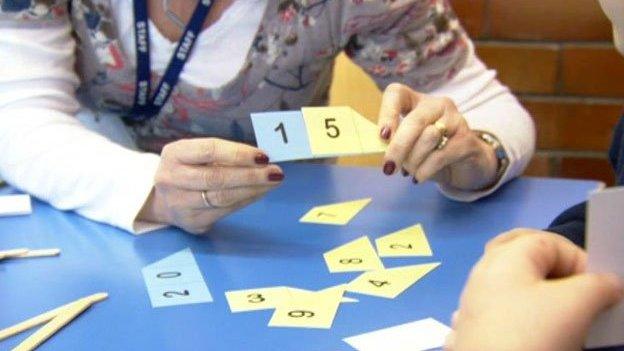
- Published2 June 2015
